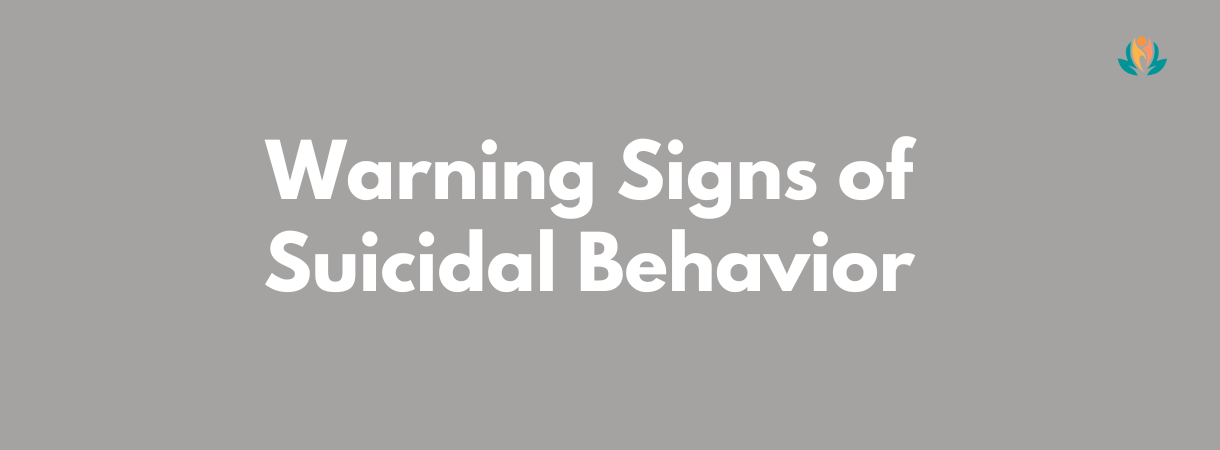September is Suicide Prevention Awareness Month. This is a time to raise awareness, spread hope, and share vital information to help those in need and or those who have been affected by suicide. Suicide is one of the leading causes of death in teenagers and is on the rise in teens and adults. Sometimes suicide can seem sudden, but in many cases, there are signs and symptoms that someone is considering taking their own life. Knowing the signs is vital so you or someone you know can seek help. These signs can indicate that someone is considering suicide or is experiencing severe emotional distress and requires support. It is also possible that someone is thinking about suicide and not showing any of these signs. What’s important to remember is that if you’re worried about yourself or a loved one, trust your instinct and seek help immediately.
Things Someone May Say:
● Talking about wanting to die or kill themselves.
● Mentioning ways to end their life or making specific plans to do so.
● Expressing feeling empty, alone, or “over it.”
● Saying people in their life would be better off without them.
Things Someone May Do:
● Say goodbye to friends and family.
● Give away their personal items.
● Sleep less or a lot more than usual.
● Eat much less or a lot more than usual.
● Withdraw from people or social activities.
● Stop taking care of their personal hygiene.
● Increase their use of drugs or alcohol.
● Act recklessly.
● Significant changes in their usual behavior.
Ways Someone May Feel:
● Extremely anxious, agitated, irritable, or angry.
● Persistently sad or depressed.
● Fluctuations in their mood.
● Hopeless, trapped, or without purpose.
● Like a burden to others.
● Numb or not interested in the parts of life they usually enjoy.
If someone is threatening suicide, talking about doing it, or actively asking for lethal means, do not leave them alone and call 911 and get emergency help. If you suspect someone is suicidal, talk to them about it. Talk to them privately, listen without judgment, and be compassionate. Provide them with the hope that things can change and suggest they get professional help and offer them options to make it an easier step for them to take. Provide a national suicide hotline number and find out whom they might feel most comfortable talking to, such as a trusted doctor or a religious counselor. Enlist the help of other loved ones if you are struggling to get through to someone who seems suicidal. Help is available 24 hours a day for you or a loved one at the Suicide and Crisis Lifeline by calling 988.



